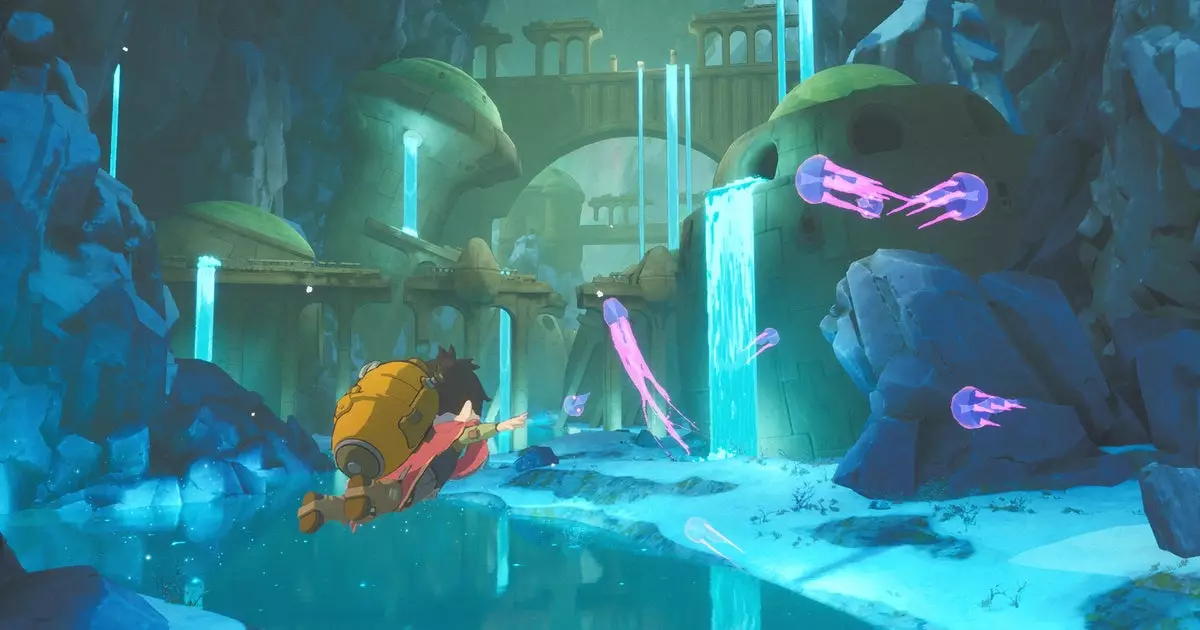The whimsy and warmth of Studio Ghibli’s animation has captivated audiences across the globe, creating an unmistakable aesthetic that is increasingly being explored in the gaming industry. Games influenced by Ghibli often invoke a sense of nostalgia, taking players on enchanting journeys through lush landscapes and fantastical encounters. The latest example of this trend is Europa, a puzzle-centric adventure game that presents players with a world rich in exploration and discovery, while drawing heavily from the stylistic elements that fans of Ghibli have come to cherish.
Gameplay Mechanisms and Worldbuilding
Europa presents an intriguing premise, offering 3-4 hours of gameplay teeming with hidden secrets and brain-teasing puzzles that encourage players to delve deeper into its universe. Players control Zee, an android who possesses various movement abilities, including a jetpack and the capability to soar across majestic sky islands. This emphasis on exploration and the upgrading of movement mechanics points to a design philosophy that prioritizes player agency and engagement. While the demo may no longer be available for public evaluation, early impressions indicate a compelling physicality to the game’s navigation, which can enhance the overall experience.
What stands out in games like Europa is the ability to create a sense of belonging within their world. The tranquil yet vibrant landscapes designed by Helder Pinto echo the serene charm of Ghibli films, invoking a blend of thrill and tranquility. Unfortunately, many titles that ostensibly draw from the Ghibli aesthetic tend to falter when replicating the depth of emotion that characterizes Studio Ghibli’s narratives. The artistry may capture the visual spirit, but the storytelling often feels like a shallow imitation.
Critique of Derivative Inspirations
As a passionate gamer, I have often found myself enticed by titles that showcase Ghibli-like visuals, yet many fall short in evoking the same sense of wonder and storytelling that the studio is renowned for. For instance, in my recent venture through Ni no Kuni: Wrath of the White Witch—while its animated cutscenes are undeniably beautiful, the gameplay sometimes feels like an echo, lacking the innovative spirit that would make it a true homage rather than a mere pastiche.
This raises an important question: Can games like Europa transcend mere mimicry of Ghibli tropes and induce a genuine emotional connection with players? New narrative structures or unique visual themes should accompany these lovingly crafted environments, allowing players to not only traverse a beautiful world but also to engage with meaningful stories that resonate deeply.
As gamers, we stand at the frontier of an evolving landscape where the bond between Ghibli and interactive experiences can deepen. Europa may signal a promising direction for this genre—a chance to innovate while still celebrating the alluring art style that Ghibli has bestowed upon us. For the modest investment of approximately $13.49 on Steam, players might find themselves not only jetpacking through splendid vistas but also uncovering a fresh narrative thread that revitalizes the heart and soul of the Ghibli aesthetic they admire. It is this fusion of aesthetics and substance that we eagerly seek in the realm of video games.


Leave a Reply